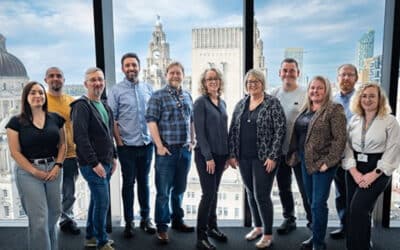The gaming sector in Liverpool City Region generates £220m each year and is the region’s largest creative industry, making it a ‘significant asset’ to the region’s economy.
That’s according to preliminary findings from a new Growth Platform report, seen by Prolific North, which has been conducted on behalf of the LCR Games Board.
Today, you’ll find 1,800 people employed across 50 games industry companies, with all six of the Liverpool City Region boroughs home to at least one games company.
Pulling in £421m of revenues each year, it’s not just the GVA impact of the games sector which makes it a key asset to the regional economy.
Productivity levels are twice the city region’s average, according to the findings, it also has the potential to grow three times faster than its forecasted annual growth rate and is set to accelerate to more than £253m of GVA in the next three years.
“We need leaders, regionally or nationally, to really push the fact that the UK and Liverpool has a burgeoning hub of games industry, employing lots of people in very good jobs that provide growth to the area. There’s a lot more to that potential that they could help foster,” Nick Davies, co-founder of Lucid Games, tells Prolific North.
Despite its potential, there are no rose-tinted glasses here and you’ll find plenty of challenges that need addressing.
Although the region has a rich gaming heritage going back four decades, many working at gaming companies across Liverpool believe the region remains overlooked in comparison with other UK gaming hubs and argue there’s still work needed to truly establish Liverpool as a games cluster.
In the first of a three-part feature series into Liverpool’s growing games sector, we’ve chatted to a handful of the key players operating in the region today and find out how its rich gaming heritage has played a major role its growth over the years.
From next week, we’ll be digging into what’s unique about Liverpool’s gaming hub, looking at the industry’s talent dilemma and tackle the key things leaders are calling for to level up the games industry regionally.
Introducing: Some of the key players across Liverpool’s gaming sector today
One of the many key players operating across Liverpool’s games industry today is Lucid Games, a developer acquired by Tencent subsidiary Lightspeed Studios last year.
Best known for Destruction AllStars, Lucid has also collaborated on major titles such as Last Sentinel, Star Wars Jedi: Survivor, Sea of Thieves and Apex Legends.
“Most people would be surprised at the list of games that were developed or co-developed in Liverpool, unlike other games hubs. I think we have just been a little bit shy about shouting about it,” says Nick Davies, co-founder of Lucid Games.
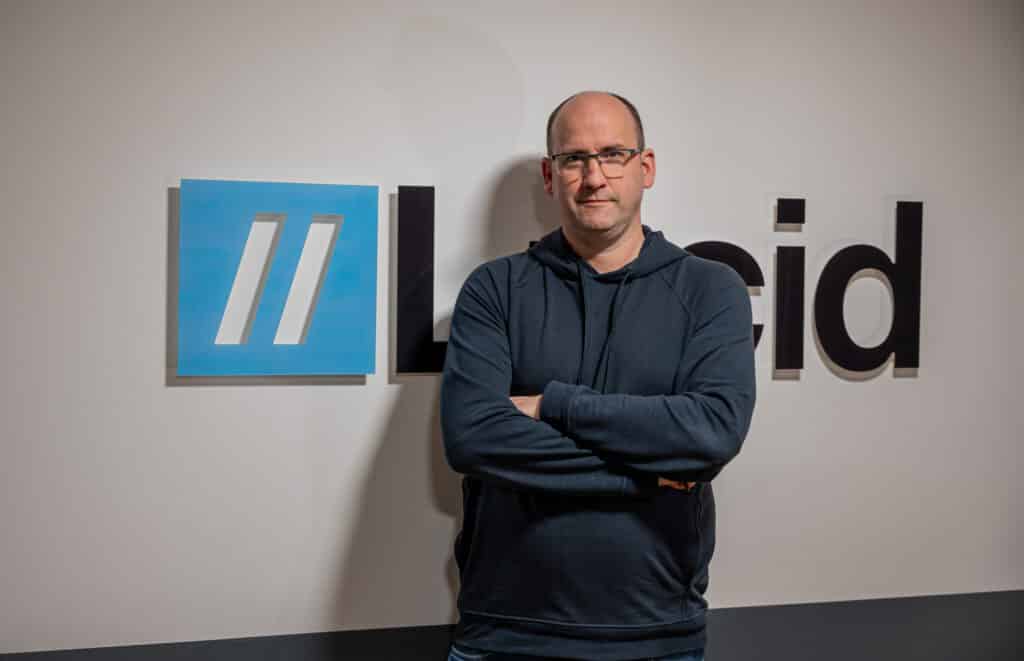
Despite its neon lights glowing in reception, the headquarters at first glance appear unassuming, tucked away on a quiet street in the heart of the Baltic Triangle, Liverpool’s digital and creative hub.
Lucid Games emerged from the ashes of development veteran Bizarre Creations, a company behind the Project Gotham series and Metropolis Street Racer after owner Activision failed to secure a new buyer. It forced Bizarre Creations to shut its doors for good in 2011.
“It’s one of those rare opportunities where we had a bit of leeway. We had some redundancy money and a few months to think about what to do next,” explains Davies.
Although some former employees left the region to pursue opportunities elsewhere, especially in Canada thanks to its major investment into the games industry at the time, plenty decided to stay put. And for good reason.
“We thought it was a chance to try something of our own, take some of what was good about Bizarre Creations and create something new and exciting. We started off small in the mobile boom without any investment at the start, we bootstrapped ourselves initially.”
Starting off with 20 people by tapping into that existing talent pool from Bizarre Creations, Lucid Games has since had steady growth over the years with just shy of 200 staff working at the company today.
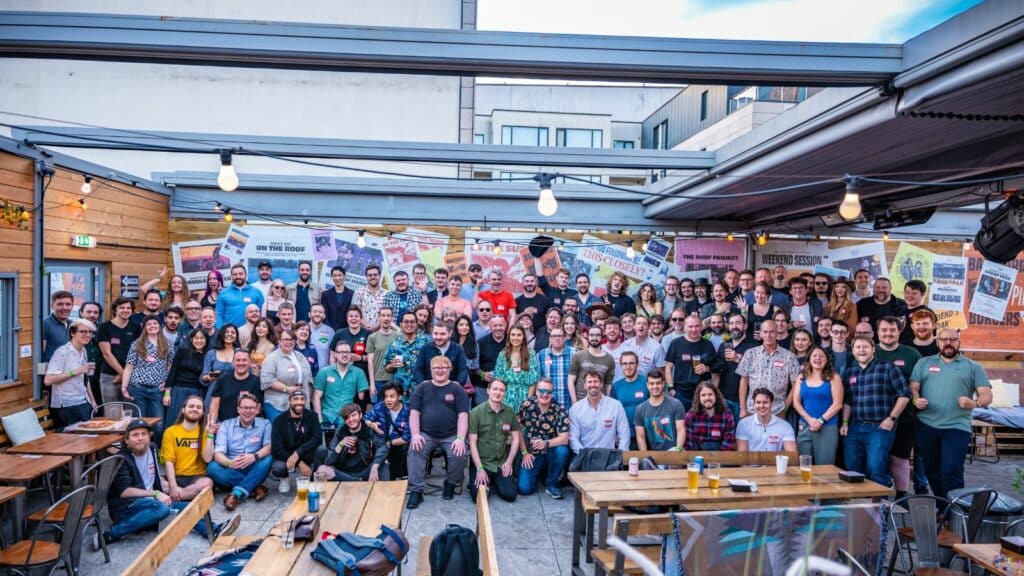
Davies exclusively revealed the company’s plans to expand on its existing studio space of 11,000 sq ft with a further 12,000 sq ft – just next door – with space for 300 people. But it doesn’t mean Lucid will be hiring fast.
“We’re not going to suddenly triple the size of staff, we want to grow in a steady way to keep the culture. We’re working on big games with the likes of EA with Microsoft but we’re also looking at what we can independently make ourselves and start to grow with the creative side of the studio.”
Before snapping up Lucid Games, new owners Lightspeed studios had been eyeing various games hubs across the UK. The region’s creative reputation and its “growth potential”, was clearly a big lure.
“It speaks volumes for Liverpool that one of the biggest companies in the world has invested in a studio in the city,” he explains. “There’s clearly potential for a hub here.”
Now, armed with the support of Lightspeed Studios, he hopes it will take Lucid Games to the “next level” with bold ambitions to create the next billion dollar game franchise.
“Their major global team has lots of talent we can work with and tap into. We’re a successful studio and understand the local market, so they’re happy for us to take the lead as a studio. I’m looking forward to where it goes in future.”
“Liverpool represents a true gaming ecosystem”
Tencent isn’t the only global gaming giant drawn to the region in recent years. Sony Interactive Entertainment has played a major role in Liverpool’s gaming heritage for the past three decades, which we’ll return to later, and Swedish-headquartered Avalanche Studios Group set up its first and only UK studio in Liverpool in 2020.
Alison Lacy, location manager at ASG, first entered the gaming industry around 12 years ago when she took on a producer role at Evolution Studios before the video game developer was shuttered by Sony in 2016. Later headhunted for a role at Bentley Motors, she decided to return to the sector when the opportunity came up to help Avalanche set up its new Liverpool base.
“Avalanche identified Liverpool as it has an existing ecosystem of talent with a long track record of great work,” she explains. “They visited different locations in the UK to decide where to go. They felt most at home and believed Liverpool spoke to them more than anywhere else. They felt that vibe of start-ups and lots of creative industries working together.”

Previously residing in offices at Royal Albert Dock, Avalanche has since relocated to the top floor of No 5 St Paul’s Square – just a short stroll away from Sony’s offices in the city centre.
Over the past four years, the Liverpool studio has steadily expanded to 50 staff who now work across all three of the group’s creative divisions and on titles including the latest addition to Expansive Worlds Call of the Wild franchise: The Angler.
“Liverpool represents a true gaming ecosystem. There are substantial development studios in Lucid with AAA heritage, smaller AR and VR studios, and the likes of Sony and PlayStation have been here for a long time.”
Another of those companies is d3t, a co-development studio credited on major titles including Marvel’s Guardians of the Galaxy, The Witcher 3: Wild Hunt, Hogwarts Legacy and LEGO Star Wars: The Skywalker Saga, to name a few.
Unlike the majority of gaming companies that appear to be concentrated in Liverpool’s city centre and the Baltic Triangle, I venture to the outskirts to meet with d3t in Runcorn. As I sit down in one of the company’s plush boardrooms, I’m greeted by d3t’s head of art, Louise Andrew, and Phil Owen, d3t’s head of engineering.
The duo reflect on d3t’s growth journey so far, now with a team of around 170 based out of the Runcorn HQ and a further 35 at the company’s second office in Gateshead.
“The region has always been a hotbed of development creating significant games,” says Phil Owen. “It’s always been a large community and that’s growing.”
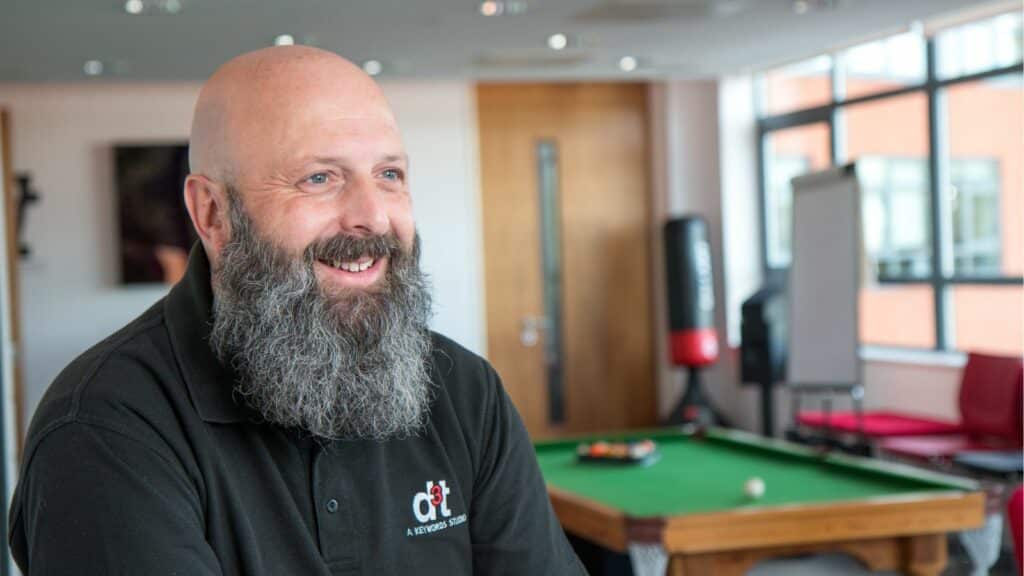
Previously working for Juice Games and TT Fusion, Owen himself is an industry veteran credited on over 40 titles including LEGO Harry Potter and Alan Wake Remastered whilst Andrew has a wealth of experience too, working in the games industry since 2001.
Keywords Studios acquired d3t in 2017, and the company’s key to success so far has been by growing “sensibly and steadily every year”. It’s not the only games company in the region to tow the same line, but it’s in stark contrast to the “old games industry model” where a publisher may offer large sums of money for a game development firm to create a title and staff up – sometimes too quickly.
“No one really puts Liverpool in the same bracket as Leamington Spa, Guildford or Brighton”
It might seem like a positive picture we’re building here but for Owen, there’s still work to do for Liverpool to truly cement its place as a “game development centre of excellence and a hub”.
“I’d say 95% of the people in the Liverpool area probably don’t know that we worked on EA SPORTS FC 24, which was the biggest selling game in the UK last year. No one really puts Liverpool in the same bracket as Leamington Spa, Guildford or Brighton when you chat to people at conferences such as GDC. I’d like to see us up there in future.
“We just need to shout about it a bit more and let people know that there are some fantastic games being made in the region.”
It’s a sentiment shared by Helen Cross, Digital & Creative Sector Lead at Liverpool City Region Growth Company. In the lobby of Radisson Red hotel, a stone’s throw from Liverpool Lime Street Station, she tells me how the region’s games sector has fast become the “biggest” creative industry but it has “never really had much of a voice”. She hopes that will change, especially with the figures emerging from the report.

“It’s never been seen as a growth area, games have often just been seen as just young person’s entertainment. Games companies here have always just got on and done stuff, it’s only recently they have tried to sort of get into the psyche of civic leaders.”
But that’s now changing. She adds: “During the pandemic, lots of companies grew quite significantly because people were at home playing games. Unfortunately, that’s now tailed off and there’s been some layoffs. We have lots of independent studios here that didn’t grow majorly during the pandemic so they haven’t had to make those layoffs. We seem to have largely weathered that storm.”
One of those indies is Ripstone Studios, headed up by Leo Cubbin and Phil Gaskell. Established in 2011, Ripstone initially set up as a publisher of games such as Chess Ultra and Poker Club but has since launched its own development studio – Rockwater Games – to create major titles such as The Queen’s Gambit Chess.
With decades of industry experience between the co-founders, they decided to launch their own business following a “water cooler moment” discussing how the market was moving towards digital downloads and a chance meeting at a parent’s evening.
“I met someone at my daughter’s parents’ evening after telling him what we were planning to do,” explains Cubbin. “He introduced us to his film producer friend in London, so Phil and I went on a train, met the producer, and showed him what we planned to do.”
On the film producer’s desk was a copy of Edge magazine with a cover of Little Big Planet 2, a game Cubbin had been a producer on. It was almost serendipitous, as the producer later ended up introducing them to a business partner.
But it’s hard work, not luck, that’s helped to supercharge the business ever since.
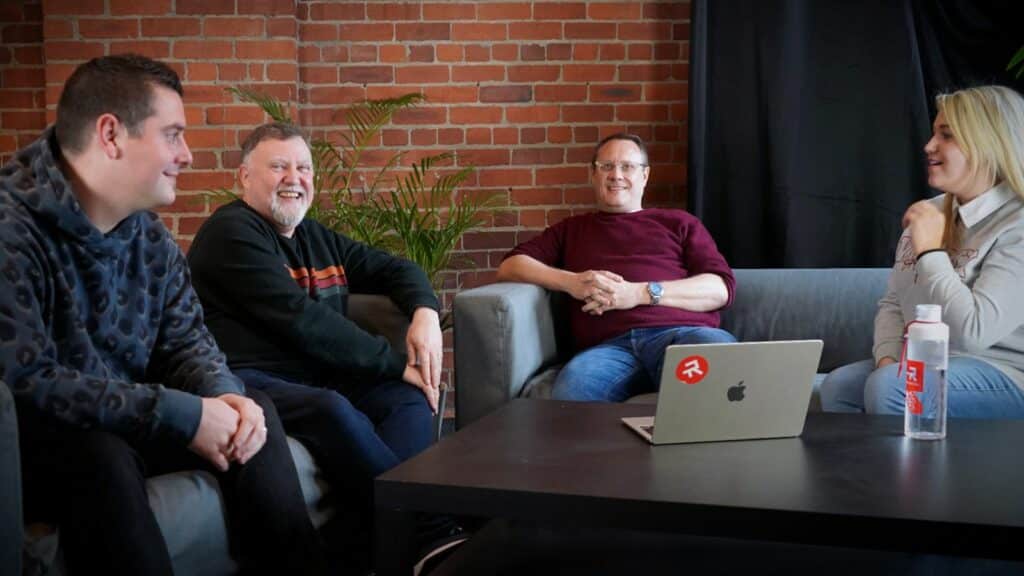
“With Ripstone’s growth and branching out with Rockwater, we started off in one room and we’ve just managed to grow and grow,” says Amy Wall, finance director at Ripstone.
“We rented a space for 13 years but we shared it with lots of different companies. At the start, that was great, but we needed a more permanent home that we can call ours that is more accessible for our people,” adds Phil Gaskell.
“We’re hiring. There’s plenty around us that are still hiring. We feel like we’re a good news story, not a bad news story. Growing deliberately and slowly, so that we don’t end up in a situation where we’re letting people go.”
With an additional studio in Birmingham, the team there is working on core tech to try and build its own engine similar to Unreal or Unity.
“It’s rare to hear people talking about building their own engines,” says Gaskell. “Exactly what we’re about to try and do!” It has not only excited the development team, it signals Ripstone’s ambition. “In the next five years, our plan is to start making something really groundbreaking,” he adds.
“Liverpool has quite a rich, deep history in game development with big players”
For Craig Pearn, director of talent acquisition at Wushu Studios, although he works remotely from Newcastle he visits Liverpool at least once every two months.
When Sony closed Evolution Studios, the video game development company behind DriveClub and MotorStorm, some of its industry veterans banded together to form Wushu Studios in 2017.
It’s yet another example of an independent, co-development company success story, now with around 150 employees that’s recently doubled its office space, moving from 5,000 sq ft offices in the Baltic Triangle to 13,300 sq ft in Liverpool’s central business district.
“We’ve got a handful of projects that we’re working on at the moment so I think we’ll always continue in co-development, because that’s where the revenue stream is for us. Moving forward, I think there’s still one eye on the creation of our own IP as well.”

Joining the business in 2022 after a stint with Ubisoft in Newcastle, Pearn reflects on Liverpool’s gaming history and why its fast become a hub for games companies to set up and scale.
“Having been in the industry since 2015, I’ve seen it happen so many times when a studio will start making layoffs or actually closes, then that will ignite an idea for someone to go and create a studio or two studios for two separate different groups.
“Post Covid, lots of new studios are popping up and down the country on the back of people making layoffs or projects being cancelled. Liverpool has quite a rich, deep history in game development with big players from the likes of Sony, Activision’s Bizarre Creations and Psygnosis back in the day.
“Lots of people working in those clusters, they all know each other and have all worked together probably at some point and crossed paths. And that’s how Wushu was formed, off the back of those layoffs.”
You’ll probably notice there’s a bit of a theme emerging here. With a rich gaming heritage and industry veterans immersed in many of the companies we chat to across the region, it’s clearly become a major driving factor behind the continued growth of this sector here.
“Psygnosis ended up effectively feeding the game developer ecosystem”
Clemens Wangerin, now founder of bespoke consultancy Digital Advisors, is another industry stalwart who fondly reflects on his lengthy career in Liverpool’s games industry and the importance of its history when we meet up.
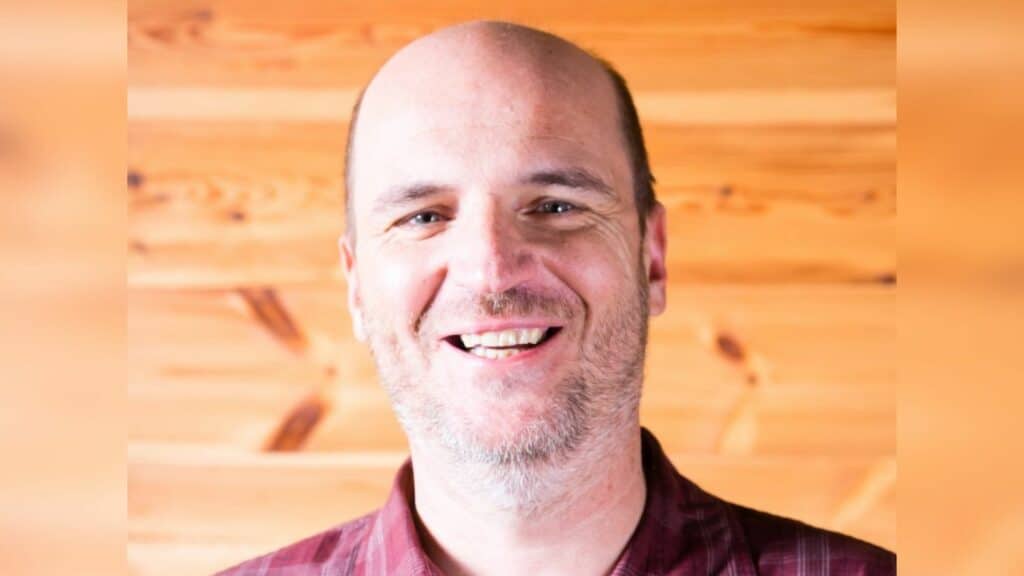
“In the 90’s, Liverpool was still very underdeveloped with very little regeneration and there was a lot of dereliction, it was still going through a hangover from the 80’s.”
But drawn by the reputation of Psygnosis and Liverpool’s budding start-up culture, he packed his bags and made the move from Germany to Liverpool in 1997 to work for the video game developer and publisher.
It’s impossible to talk about Liverpool’s games sector without reflecting on the transformative impact companies like Psygnosis had on the games sector, not just regionally but globally too. From programmers, developers to designers, Psygnosis employed around 2,000 people across the North West at its peak and was creating some of the most well-known franchises including Lemmings, Wipeout and Colony Wars.
“I think Psygnosis ended up effectively feeding the game developer ecosystem, they certainly did from a talent point of view,” he explains.
Psygnosis was snapped up by Sony in 1993 marking the beginnings of the gaming giant’s roots in the region. It unlocked access to funding and tech that “no other company had” in the UK at that time, particularly on the cusp of the PlayStation era.
“By the time we get to the late 90’s, Psygnosis had a lot of success but it always operated independently within Sony’s umbrella,” says Wangerin.
As PlayStation 2 began to emerge, a “refocusing and restructuring” meant the company’s global footprint was dramatically reduced and soon enough the Psygnosis name “fell by the wayside”.
The studio in Wavertree was renamed to Studio Liverpool in Wavertree, with Wangerin at the helm helping to expand the team from 40 up to 150 staff from 2001 to 2009.
“Creatives thrive on good vibes and working on great games. The studio wasn’t in a great place so it needed invigorating. It took a few years to turn that around, but we built a great team, many of which ended up forming Firesprite.”
When Sony closed Studio Liverpool in 2012, Wangerin teamed up with former colleagues to form his own start-up and has since led teams at Starship Group and vTime, whilst others set out to establish Firesprite.
Growing to around 300 staff, Firesprite collaborated with PlayStation on several games including The Playroom (PS4) and The Playroom VR (PS VR). In 2021, it was almost a full circle moment when Sony snapped up Firesprite, which was hailed as an exciting moment to “grow the PlayStation presence in Liverpool”.
But there’s been troubles over at Sony Interactive Entertainment, recently announcing significant “organisational restructuring” with around 900 global job cuts and “reductions” at Firesprite. How this will exactly impact Firesprite or Sony’s operations in Liverpool, I’m still unclear on, but I have been made aware that some staff from Firesprite have been approaching other studios about open roles.

Whilst I had an informal chat with a leader from Sony’s Liverpool office about potentially being involved in this piece prior to the job cuts being announced, despite repeated attempts I’ve since been unable to get a response from them.
But that cycle of new companies forming off the back of industry job cuts or studios closing down keeps churning on. Former Psygnosis developer Gary Nichols has recently set up a new studio called Starlight Games, formed out of Atomicom which he launched alongside industry veterans in 2010.
“Senior leadership move on or set up something new, that cycle has been really exciting over the past 30 years in Liverpool and has led to some amazing games, amazing projects and constant innovation,” explains Jamie Brayshaw, head of marketing at Ripstone Studios and co-chair of the Liverpool City Region Games Hub Board.
“There’s a constant cycle of exciting new game studios, emerging from bigger studios failing or realigning.”
Despite the clear growth potential of Liverpool as a games hub, Wangerin urges: “There are lots of nuts and bolts stuff needed, we still have a lot of work to do.”
Next week, our second piece in this three-part series will take a closer look at what’s different about Liverpool’s gaming sector, the talent dilemma and more.


